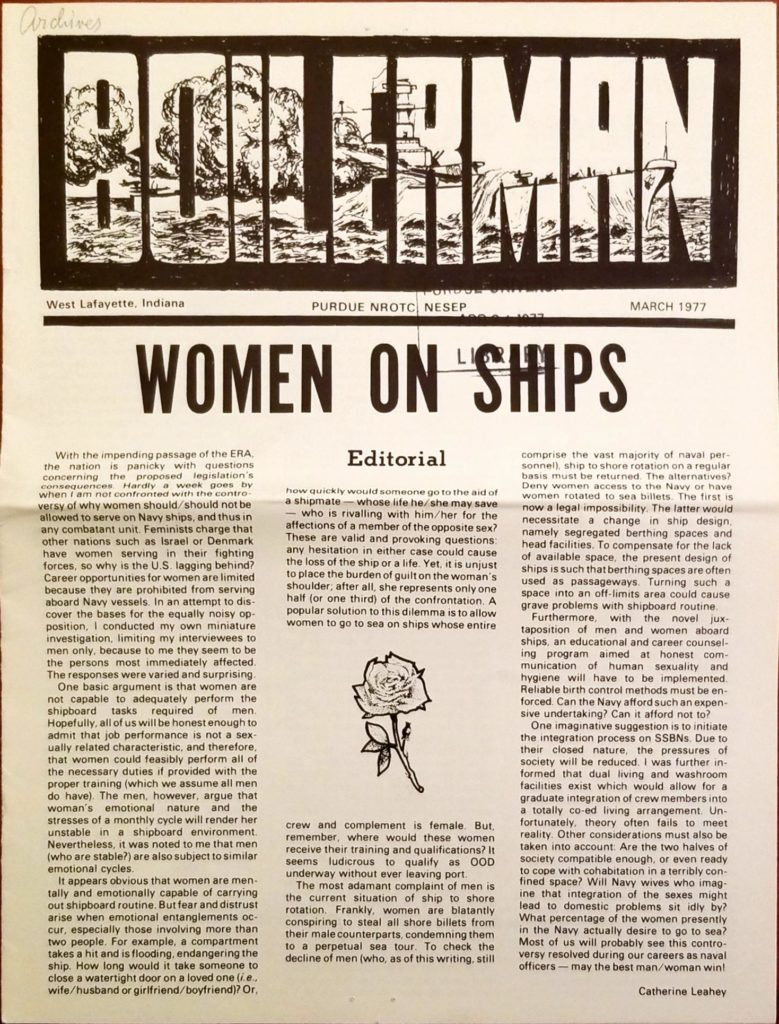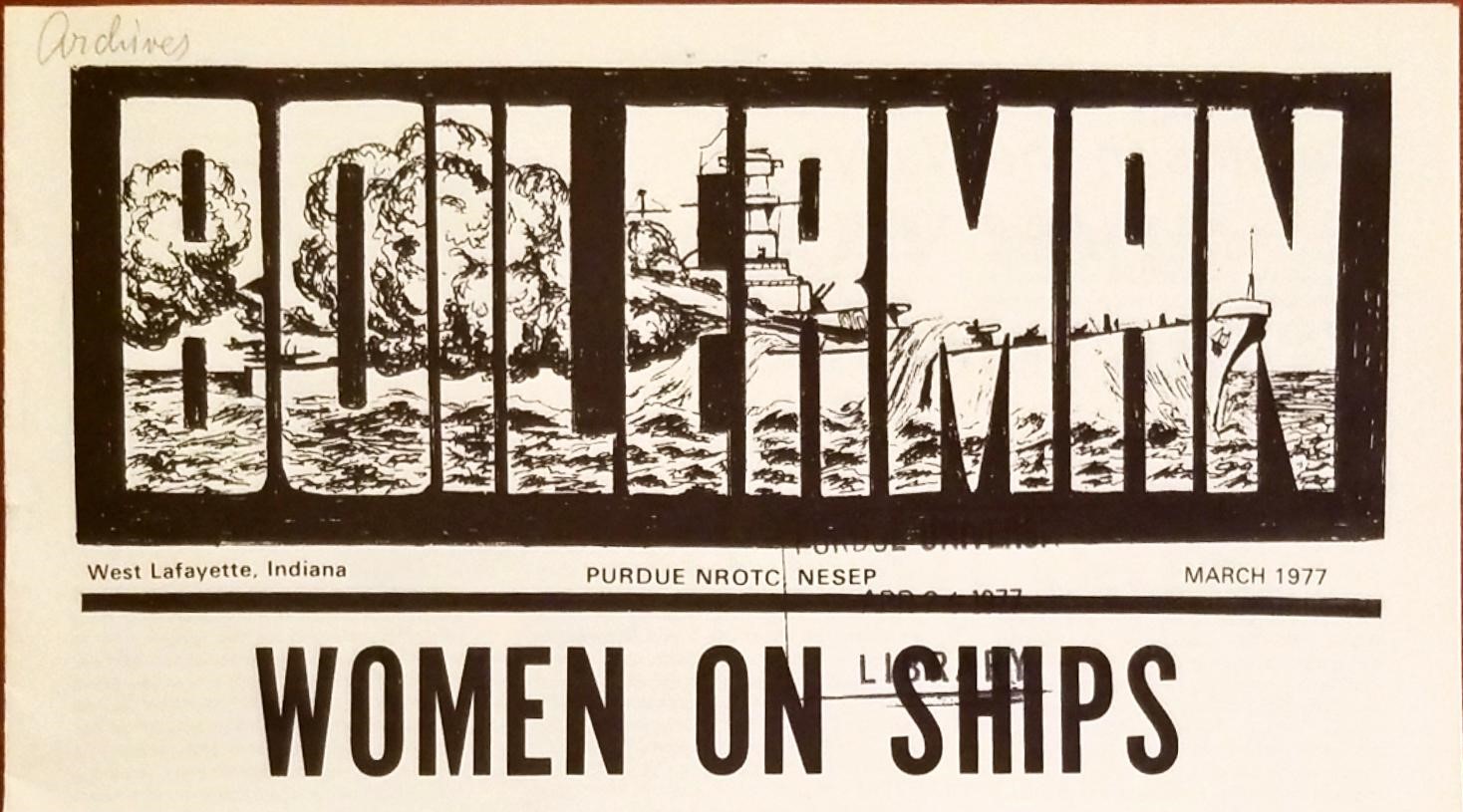Posted on October 31, 2019 by small20
Women in ROTC
by Stephen Goula
Many Americans feel a desire to answer a call for duty. I myself answered that call in 2010 and now plan to commission and serve in the Army for as long as the Army will allow. Women within the American ranks that desired military service have always answered that call when our nation asked them to. For women though, answering that call came with restrictions regarding the limits in which they could serve. Even when I first joined the Army, certain privileges were still not available to women, specifically combat arms branches. Since then the Army, along with all branches, have opened these jobs to women and once again women are proving their worth and capabilities within the military. But the struggle with these restrictions were certain women wanted to serve their country in more of a capacity than say a nurse or a typist. These women wanted to lead other men and women in austere and foreign environments that the military prides itself on winning in.
One of the many routes a woman can pursue these leadership positions when answering their call for duty is the Reserve Officer Training Corps (ROTC). ROTC is a leadership program designed to train college students in the necessary skills required to become an officer within the military ranks. Specifically, Purdue’s ROTC program has roots that begin in 1888, but the program did not start training students at Purdue until 1919. At this time the program was restricted to women. It was not until 1972 that Purdue university began to integrate women into its ROTC program. Since the integration of women, Purdue ROTC has produced many women officers that have helped shape our military today while paving the way for other women to follow in their footsteps.
Carol Pottenger stepped onto Purdue’s campus in 1973 with the intentions of serving in the Navy. She moved around in her early years with her parents and five siblings, but her time spent in Florida her senior year of high school is where she recalls garnering an interest in serving her nation. It was in Florida where she met a third cousin who was a naval submariner, “I think that’s really what mostly sparked my interest to be in the Navy” Carol states, “hearing his stories and being inspired by him”. Her issue was only four universities were open to women for ROTC but she still wanted to attend a prestigious university, “there were only four ROTC units open as I recall in ’72 and I graduated from high school in ’73, so I was looking at those four universities, and frankly my brothers and sisters that were older than me had all attended very prestigious institutions, Princeton, Northwestern, and then University of Virginia”. With her options for colleges limited, she chose the most prestigious of the four and headed out to West Lafayette, Indiana to become a Boilermaker.
Carol’s integration into ROTC as a woman was not something she ever had to be wary of. The naval cadre were professional, and Carol and her fellow female cadets were given the same leadership opportunities within Navy ROTC that the men were given. Her experiences in ROTC were some of the best of her life. She loved the course curriculum and found it interesting and challenging. Being a history major she admitted that some of the course work was not something she was comfortable with but that is what makes ROTC such a premier leadership course. It forces students from all backgrounds to think outside of their comfort zone and resolve a problem. This was no different for Carol Pottenger and the training she received at Purdue’s Navy ROTC was a foundation that helped her along in her illustrious career.
Originally Carol set her sights on becoming a nurse, a profession very common in this period. But after she arrived at Purdue and spent some time within the ROTC program, she realized there were more opportunities to explore. The sense of selfless service and being a part of something much bigger than just one individual captivated Carol’s interest. As her interest grew, so did her ambitions of what she wanted to do within the Navy. At the time, sea duty for the Navy was still closed to women. This was a struggle women faced when wanting to serve their country. They have the same desires as men but not the same opportunities. None the less, Carol kept her head down and focused on the tasks she had before her, still hoping the Navy would open other career opportunities that she desired. Carol Pottenger graduated Purdue in 1977. Shortly after she graduated the Navy opened midshipmen duties to women. Carol’s desire to serve in a larger capacity was now something she could pursue without restrictions.
In 1978 the Navy sent out a message that the first ships to open to women were going to be repair ships. This “momentous” event, as Carol describes, now allowed women to be on the front lines of the Navy and lead sailors in a multitude of complex situations. On the first ship, Carol and three other women officers were integrated with about 1200 male sailors. This was just the beginning of Carol’s career where she would then go on to become many “firsts” for women in the Navy. Along with being among the first women to serve at sea, Carol was the first female to command an Expeditionary Strike Force in the Navy, and the first female officer to hold the position of deputy chief of staff for capability and development within NATO.
Since the inception of our nation’s military women have always occupied roles within military ranks. Their desires were hindered by restrictions put in place that did not allow women to serve in a frontline capacity. When Purdue integrated women into the ROTC program’s in 1972 it allowed for more women to pursue their personal call to service that they desired. Purdue ROTC programs ensured the transition and integration of women was professional by affording the female cadets the same opportunities their male counterparts had.

Article cover from Boilerman Magazine in March of 1977 stating sea duties are opening to
women.
Credit: Catherine Leahey, Boilerman, March 1977. Purdue Archives, West Lafayette, IN.
(also Banner Image)
Category: Women and Military Leadership at Purdue Tags: feminism, support, war efforts, women in military, women leaders, World War II
